Anxiety Stress

Can exercise physiology help in managing stress and anxiety levels ?
Exercise physiology plays a significant role in managing stress and anxiety levels by promoting various physiological responses that counteract the negative effects of these conditions on the body. By incorporating regular physical activity into your lifestyle, you can improve your overall mental well-being and reduce the impact of stress and anxiety on your daily life.

Can regular physical activity help in reducing stress and anxiety ?
Regular physical activity can help reduce stress and anxiety by promoting the release of endorphins, improving sleep quality, and boosting self-esteem. Aerobic exercises like running, swimming, or cycling are particularly effective because they increase heart rate and circulation, leading to improved oxygenation of the brain. Yoga and tai chi focus on breathing and relaxation techniques that can also help reduce stress and anxiety. The American Heart Association recommends at least 150 minutes of moderate-intensity aerobic exercise or 75 minutes of vigorous-intensity aerobic exercise per week for adults. Finding an exercise routine that works for you and that you enjoy is key to sticking with it over time.

What are the best types of exercises for reducing stress and anxiety ?
This article discusses the best types of exercises for reducing stress and anxiety, including cardiovascular exercises like running and cycling, strength training exercises like weightlifting and resistance band training, as well as yoga and meditation. It provides benefits and tips on how to get started for each type of exercise. Incorporating these exercises into your daily routine can help to reduce stress and anxiety, leading to improved overall well-being.

How does environmental stress from climate change influence mental health disorders such as anxiety and depression ?
Climate change is a global issue that not only affects the environment but also has significant implications for human health, including mental health. Environmental stress from climate change can exacerbate existing mental health disorders such as anxiety and depression or even trigger new ones. One of the most direct ways in which climate change impacts mental health is through increased exposure to natural disasters such as hurricanes, floods, wildfires, and heatwaves. These events can cause traumatic experiences, loss of homes and communities, displacement, and financial hardship, all of which are risk factors for developing mental health disorders like anxiety and depression. Climate change affects ecosystem services, such as air and water quality, food production, and outdoor recreational opportunities, all of which have been linked to mental well-being. The socioeconomic impacts of climate change, such as job loss in industries affected by climate policies or extreme weather events, can lead to financial insecurity and social disruptions that exacerbate mental health conditions. Anticipatory anxiety about the potential consequences of climate change can also contribute to chronic stress and exacerbate anxiety and depressive symptoms. Coping mechanisms and building resilience are essential for managing the psychological impacts of environmental stress.
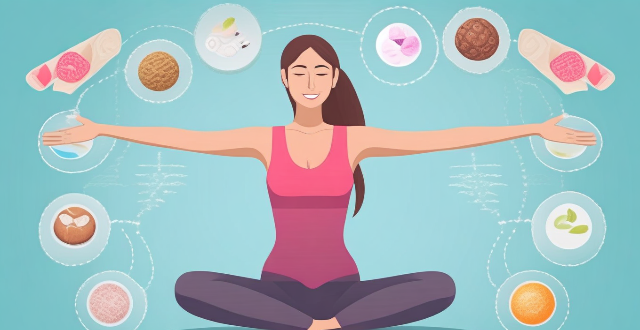
How do celebrities deal with stress and anxiety in their daily life ?
Celebrities handle stress and anxiety through exercise, meditation, yoga, healthy eating, hobbies, social support, professional help, time management, limiting social media exposure, and self-care routines.

How can I reduce stress and anxiety before and during exams ?
Exams can be a stressful time for many students, but there are several strategies you can use to reduce stress and anxiety before and during exams. These include early and regular study, creating a study plan, practicing old exams, getting enough sleep, eating healthy, staying positive, avoiding negative thoughts, visualizing success, using relaxation techniques such as deep breathing and meditation, exercising regularly, reading instructions carefully, starting with easy questions, managing your time, and staying calm during the exam.

Can regular physical activity reduce anxiety levels ?
Regular physical activity can help reduce anxiety levels by improving mood, reducing stress hormones, promoting better sleep, increasing self-esteem and confidence, and providing social support. Engaging in at least 30 minutes of moderate-intensity exercise per day can significantly reduce anxiety symptoms.

How does stress affect women's mental health ?
This text discusses the effects of stress on women's mental health, including anxiety and depression, sleep disturbances, emotional eating, low self-esteem, difficulty concentrating, irritability and mood swings, substance abuse, and physical health issues. It emphasizes the importance of self-care practices to manage stress effectively.

How can I manage test anxiety effectively ?
Test anxiety is a common issue among students that can be managed effectively through various strategies. Recognizing symptoms, practicing mindfulness, seeking support, preparing early, and staying healthy are some ways to combat test anxiety. Additionally, visualizing success, using relaxation techniques, setting realistic goals, staying organized, pacing oneself, and focusing on one question at a time can help improve performance. After the test, review mistakes without judgment, reflect on performance, and celebrate efforts regardless of the outcome.

Is it normal to experience anxiety before an exam ?
Is it normal to experience anxiety before an exam? Yes, it is absolutely normal to experience anxiety before an exam. In fact, it's a common reaction that many students face. This feeling of unease or nervousness is often referred to as "test anxiety" or "exam stress." Let's delve into this topic further: Understanding Exam Anxiety Exam anxiety can manifest in various ways, such as physical symptoms like sweating, trembling hands, or a racing heartbeat. Mental symptoms like difficulty concentrating or thinking negatively about the exam are also common. Emotional symptoms like feeling overwhelmed or fearful may also occur. Why Does It Happen? Several factors can contribute to exam anxiety, including performance pressure, lack of preparation, past experiences, and perfectionism. Coping with Exam Anxiety There are several strategies to manage exam anxiety effectively, such as adequate preparation, relaxation techniques, positive self-talk, time management, and maintaining a healthy lifestyle. Seeking Support If your anxiety is severe or persistent, consider seeking support from tutoring, study groups, or professional help. Final Thoughts Remember, it's okay to feel anxious before an exam. Acknowledge your feelings without judgment and utilize the strategies mentioned above to manage your anxiety. With preparation and the right mindset, you can approach your exams with confidence and competence.

Are there any foods that can help alleviate stress ?
The text provides a summary of foods that can help alleviate stress, including dark chocolate, avocado, blueberries, salmon, and chamomile tea. Each food is explained in terms of its benefits and recommended intake. The article emphasizes that while these foods may help reduce stress levels, they should not be used as a substitute for professional medical advice or treatment.

How does stress management affect women's well-being ?
Stress management plays a crucial role in women's well-being, affecting their physical, mental, and emotional health. By managing stress, women can improve their immunity, sleep quality, and reduce the risk of chronic diseases. It also helps in improving mood, concentration, and reducing anxiety and depression. Stress management can lead to improved relationships, self-esteem, and increased resilience. Overall, it is essential for women's well-being and can lead to a happier and healthier life.

Can climate change exacerbate mental health issues such as depression and anxiety ?
Climate change can exacerbate mental health issues such as depression and anxiety through various pathways, including extreme weather events, displacement and loss of home, food insecurity, and economic stress. It is crucial for policymakers and healthcare professionals to recognize the connection between climate change and mental health and implement strategies to mitigate the adverse effects of climate change on mental well-being.

How can stress management contribute to better personal health ?
Stress management is crucial for maintaining physical and mental health, as it can reduce the risk of chronic diseases, improve sleep quality, boost the immune system, reduce anxiety and depression symptoms, enhance cognitive function, and increase resilience. Incorporating stress management techniques into daily routines can lead to better overall well-being and a higher quality of life.

Can exercise help with stress management ?
**Topic:** Can Exercise Help with Stress Management? **Summary:** * **Introduction:** The inevitability of stress and its potential impact on health highlight the importance of effective stress management. Exercise is often touted as a beneficial method for reducing stress. * **Relationship Between Exercise and Stress:** * **Physical Effects:** Exercise triggers endorphins, reduces cortisol levels, and improves sleep quality—all of which contribute to stress reduction. * **Mental Effects:** Enhanced cognitive function, increased self-esteem, and mindfulness techniques associated with exercise can aid in stress management. * **Benefits of Exercise for Stress Management:** * **Physical Benefits:** Improved cardiovascular health, weight management, and pain relief can reduce stress caused by related health issues. * **Mental Benefits:** Exercise can alleviate symptoms of anxiety and depression, improve mood, and increase resilience to stress. * **Practical Tips:** * **Setting Goals:** Start small and choose enjoyable activities to make exercise a sustainable habit. * **Consistency:** Scheduling workouts, finding an accountability partner, and tracking progress can help maintain a regular exercise routine. * **Conclusion:** Exercise is a powerful tool for managing stress, offering both physical and mental benefits. Incorporating it into one's lifestyle can significantly enhance overall well-being and resilience to life's challenges.

Can team sports help with social anxiety ?
Team sports can potentially help individuals with social anxiety by providing a supportive environment for exposure therapy, building confidence, offering positive reinforcement, distracting from self-consciousness, and developing social skills. However, professional guidance should be sought if social anxiety significantly impacts one's life.
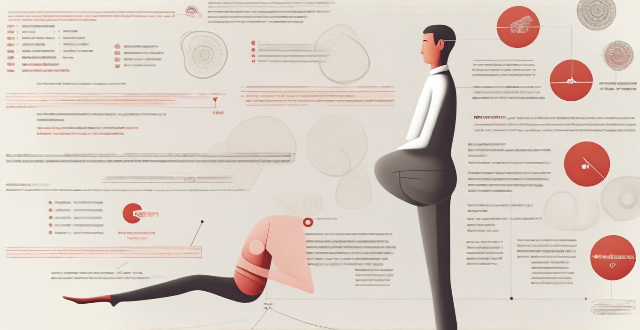
Is yoga an effective method for stress relief ?
Yoga is a popular method for stress relief, offering physical, mental, and emotional benefits. Research supports its effectiveness, and incorporating yoga into your routine can significantly reduce stress levels. Consistency and personalization are key to experiencing its full benefits.
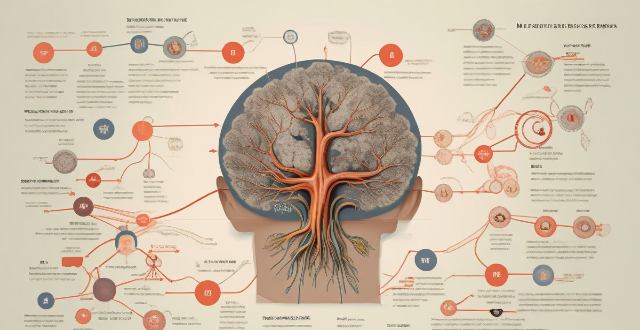
How can I distinguish between normal nervousness and excessive test anxiety ?
Normal nervousness is a natural response to stress, while excessive test anxiety can have negative effects on performance and well-being. Signs of excess test anxiety include excessive worry, avoidance behavior, physical symptoms, negative self-talk, and behavioral changes. Seeking help from a trusted source can provide guidance and support to manage anxiety and improve performance.

How does meditation help in reducing stress levels ?
Meditation is a practice that helps in reducing stress levels by calming the mind and body, improving concentration, promoting emotional health, increasing self-awareness, and enhancing mindfulness. It is a powerful tool for managing stress effectively and leading a happier, healthier life.
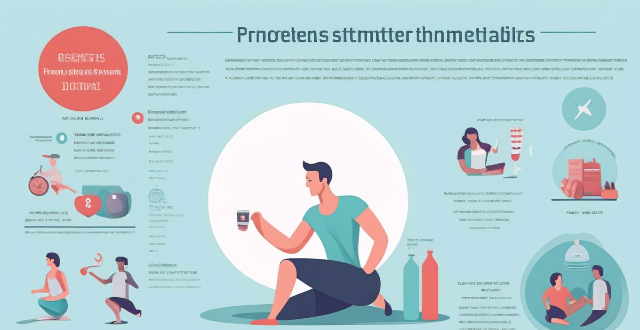
How can I reduce stress in my daily life ?
The article provides several tips on how to reduce stress in daily life, including identifying the sources of stress, practicing mindfulness and meditation, exercising regularly, eating a healthy diet, getting enough sleep, and connecting with others. It emphasizes the importance of taking steps to manage stress and improve overall well-being.

Are there any specific exercises for dealing with test anxiety ?
Managing Test Anxiety: Strategies for Success Test anxiety is a common issue faced by many students, especially during exams. It can have a negative impact on performance and overall well-being. However, there are specific exercises that can help in dealing with test anxiety. In this article, we will discuss some effective strategies for managing test anxiety. Mindfulness meditation is a powerful tool for reducing stress and anxiety. By focusing on the present moment and observing thoughts without judgment, you can learn to calm your mind and reduce feelings of anxiety. Deep breathing exercises can help to slow down your heart rate and relax your muscles, reducing feelings of anxiety. Visualization techniques involve imagining yourself successfully completing a task or achieving a goal. This can help to build confidence and reduce anxiety. Cognitive restructuring involves identifying and challenging negative thoughts that contribute to anxiety. By replacing these thoughts with more realistic and positive ones, you can reduce feelings of anxiety. In conclusion, test anxiety is a common issue faced by many students, but there are specific exercises that can help in dealing with it. Mindfulness meditation, deep breathing exercises, visualization techniques, and cognitive restructuring are all effective strategies for managing test anxiety. By practicing these exercises regularly, you can reduce feelings of anxiety and improve your performance on exams.

What are the best exercises for improving mental health ?
Engaging in regular physical activities is crucial for maintaining good mental health. Some of the best exercises for improving mental health include cardiovascular exercises like running, cycling, and swimming; strength training exercises like weightlifting, resistance bands, and bodyweight exercises; and yoga and meditation practices like Hatha yoga, mindfulness meditation, and Tai Chi. By incorporating these exercises into your routine, you can reduce stress and anxiety levels while also improving overall well-being.

How do I manage stress while training for a marathon ?
Managing stress is crucial during marathon training. Tips include setting realistic goals, following a structured plan, prioritizing recovery, staying hydrated and nourished, getting enough sleep, practicing mindfulness, seeking support, managing time wisely, and embracing the process. These strategies help minimize stress and make the training journey more enjoyable.

What advice would a psychologist give for someone with severe exam anxiety ?
Exam anxiety is a common issue that can impact performance. A psychologist offers advice on recognizing symptoms, identifying triggers, coping strategies (time management, study techniques, relaxation techniques, positive self-talk, seeking support), preparing for the exam day (sleep, healthy meal, arriving early), during the exam (reading instructions carefully, staying calm and confident, managing time wisely), and after the exam (reflecting on performance, taking care of yourself). By understanding exam anxiety and adopting effective strategies, individuals can overcome their fears and perform to the best of their abilities.
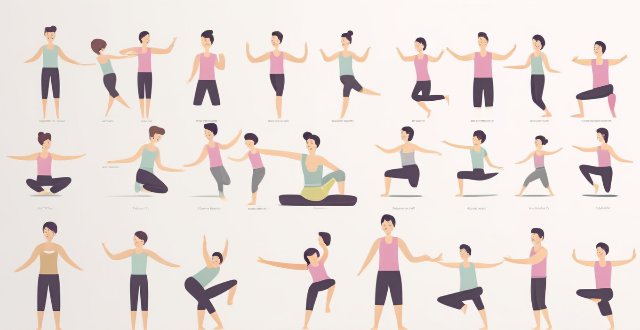
What are the best types of exercises for stress relief ?
The best types of exercises for stress relief include aerobic exercise, yoga, pilates, tai chi, and strength training. Aerobic exercise increases your heart rate and makes you sweat, which can help to reduce stress levels. Yoga helps to calm the mind and body, reducing stress and anxiety levels. Pilates focuses on strengthening the core muscles, improving posture and balance, and increasing flexibility. Tai Chi combines deep breathing with slow, flowing movements and has been shown to be effective in reducing stress levels. Finally, strength training involves using resistance bands or weights to build muscle strength and endurance.

How can athletes manage pre-game nerves and anxiety ?
Pre-game nerves and anxiety are common for athletes but can be managed through various strategies, including mindfulness techniques, physical preparation, mental strategies, support systems, and practice. These methods help athletes perform at their best by transforming nervous energy into focus and drive for success.

What role does preparation play in managing exam-related stress ?
Exam-related stress is a common experience for many students, and it can have a significant impact on their performance. However, preparation is one of the most effective ways to manage this stress. In this article, we will explore the role that preparation plays in managing exam-related stress. Preparation is crucial when it comes to managing exam-related stress. It reduces anxiety, increases efficiency, improves performance, and builds resilience. To prepare for exams, start early, create a study plan, review notes and textbooks, practice with past papers, seek help if needed, take care of yourself, stay positive, visualize success, avoid procrastination, and use relaxation techniques. By following these strategies, you can prepare yourself effectively for exams and manage any related stress. Remember, preparation is key to success!

What are some natural remedies for stress relief ?
Stress is a common problem that affects people of all ages and backgrounds. While there are many ways to manage stress, some people prefer to use natural remedies instead of relying on medication or other treatments. Here are some natural remedies for stress relief: 1. Exercise: Regular exercise can help reduce stress by releasing endorphins, which are natural mood boosters. Even a short walk or jog can make a big difference in your overall well-being. 2. Meditation: Meditation is a popular way to reduce stress and improve mental clarity. It involves focusing on your breathing and clearing your mind of distractions. There are many different types of meditation, so you can find one that works best for you. 3. Yoga: Yoga combines physical exercise with mindfulness and relaxation techniques to help reduce stress and improve overall health. Many yoga classes also include music and aromatherapy to further enhance the experience. 4. Massage therapy: Massage therapy can help relieve muscle tension and promote relaxation by stimulating the release of endorphins and reducing cortisol levels in the body. 5. Aromatherapy: Essential oils such as lavender, peppermint, and chamomile have been shown to have calming effects on the brain and body, helping to reduce stress and anxiety. 6. Herbal teas: Herbal teas like chamomile, ginger, and lemon balm contain compounds that have been shown to have anti-inflammatory and calming effects on the body. 7. Deep breathing exercises: Deep breathing exercises involve taking slow, deep breaths through your nose while focusing on your breath. This helps to calm your mind and relax your body. 8. Spending time in nature: Being surrounded by nature has been shown to have a positive impact on mental health and reduce stress levels. Taking a walk in the park or going for a hike can be a great way to de-stress after a long day at work or school.

How can I overcome fear and anxiety in sports competitions ?
Fear and anxiety in sports competitions can be managed through preparation, mindset adjustments, relaxation techniques, a strong support system, and consistent routines. By focusing on training, visualization, goal setting, positive self-talk, acceptance, deep breathing, progressive muscle relaxation, meditation, coaching, teammate support, family and friend encouragement, pre-competition routines, healthy habits, and post-competition analysis, athletes can improve their performance and enjoyment of the game.

How can sport psychology counseling help with mental health issues such as anxiety and depression in athletes ?
Sport psychology counseling is a valuable resource for athletes dealing with mental health issues such as anxiety and depression. It involves understanding the problem, setting goals, managing stress, building confidence, developing emotional intelligence, and fostering social support. Tailored approaches, consistency, and patience are key to achieving long-term success in improving both mental well-being and performance.